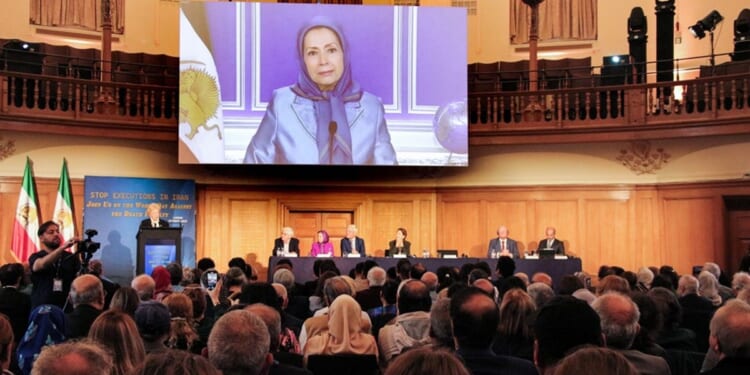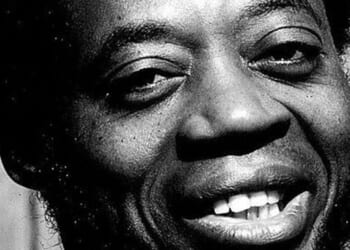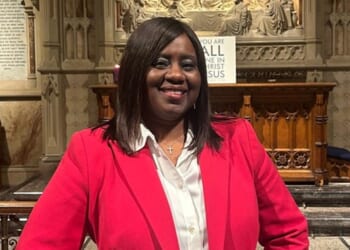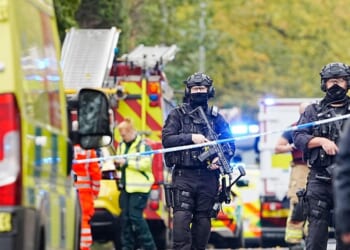A CALL to halt the execution of 17 political prisoners in Iran was issued at a conference in Church House, Westminster, on Saturday.
The conference marked last Friday’s World Day Against the Death Penalty and was organised by the National Council of Resistance of Iran (NCRI).
A press release from the organisation — a coalition of dissident groups led by the People’s Mojahedin Organisation of Iran (MEK), designated a terrorist group in Iran — said that the 17, charged with affiliation with the MEK, were “at grave risk as the regime intensifies its campaign of repression”.
It reported that more than 500 people, including politicians in both the United States and the UK, had signed a statement condemning executions and human-rights abuses in Iran. “Democratic governments worldwide must hold the Iranian regime’s leaders and perpetrators accountable for these atrocities and refer Tehran’s appalling human rights dossier to the UN Security Council for the adoption of concrete and punitive punishments,” it says.
In August, the UN High Commissioner for Human Rights, Ravina Shamdasani, reported that the Iranian authorities had executed at least 841 people since the beginning of the year.
In July, Amnesty International condemned the “arbitrary executions of [the] tortured political dissidents” Behrouz Ehsani and Mehdi Hassani — accused of “armed rebellion against the state”, “enmity against God”, and “corruption on earth”, owing to alleged MEK membership — on 27 July. Kristine Beckerle, deputy regional director for the Middle East and North Africa, spoke of a “horrific execution crisis”, in which nearly 700 people had been hanged this year.
“They were executed in secret without notice to them or their families after a grossly unfair trial by a Revolutionary Court,” she said. “They were denied access to their lawyers for nearly two years before a trial that lasted only five minutes and during which they were not allowed to speak in their own defence. Forced ‘confessions’ extracted through beatings, prolonged solitary confinement and threats to further harm them and their families were used as evidence to convict them.”
The Iranian authorities used the death penalty “as a tool of political repression in times of national crisis to crush dissent and spread fear among the population”.
Amnesty International has drawn attention to calls from the Iranian state media for a repetition of the 1988 prison massacres, in which thousands of political dissidents were secretly executed. Repression has increased since the 12-day war with Israel, it says, “with mass arrests, alarming official orders to expedite trials and executions”, and an emergency Bill, awaiting final approval, to expand the scope of the death penalty.
The President of the NCRI, Maryam Rajavi, told the conference on Saturday that executions and death sentences were carried out “in blatant violation of every standard of fair justice. . . To the mullahs we say, if you are sincere, open the trial sessions of political prisoners and PMOI members facing execution to the public, just once. . . Let a delegation from the International Committee of the Red Cross, the United Nations, or other international organisations interview the 17 individuals condemned to death on charges of PMOI membership. Then the world will recognise that they have committed no crime other than fighting for the freedom of an enslaved nation.”
Among the British speakers addressing the conference was Dame Theresa Villiers, a former Conservative MP, who said that the UK Parliament’s Intelligence and Security Committee had “reached the clear conclusion that the Iranian government uses assassination as an instrument of state policy” in a report that highlighted “the sharp increase in the physical threat posed to dissidents and opponents of the regime who live here in the UK”. There had been at least 15 attempts at murder or kidnap against British nationals or UK-based individuals since just the beginning of 2022.
Church leaders who have expressed support for the NCRI include the former Archbishop of Canterbury Lord Williams. In January, he urged the Foreign Secretary, David Lammy, to intervene to stop the execution of Mr Ehsani and Mr Hassani.
“He should send a message — don’t pretend this doesn’t matter,” he said. “These men and other dissidents in Iranian prisons need to know they are not forgotten.
“It’s difficult to know if we can make a difference, but we must try. I also think we are a bit stymied as to what we do with Iran. No one outside Iran really knows where the pressure points are; so we really need to listen to the people and actors like Maryam Rajavi, the President-elect of the National Council of Resistance of Iran.”
On Tuesday, the NCRI reported that, since the conference on Saturday, a further 26 people had been executed.
















